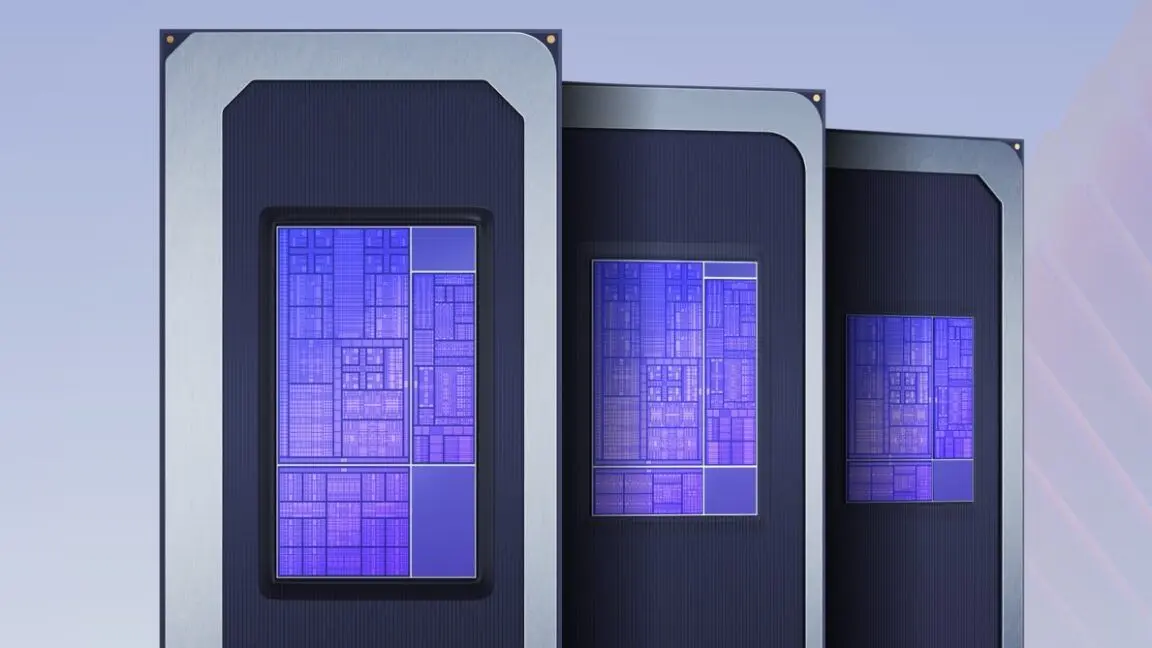Intel Advances AI Capabilities with Updated Media Stack and NPU Driver
3 Sources
3 Sources
[1]
Intel Media Stack Updated With Full Support For Lunar Lake, Initial Battlemage Support
Intel NPU Driver Being Updated To Handle Larger AI Workloads Michael Larabel is the principal author of Phoronix.com and founded the site in 2004 with a focus on enriching the Linux hardware experience. Michael has written more than 20,000 articles covering the state of Linux hardware support, Linux performance, graphics drivers, and other topics. Michael is also the lead developer of the Phoronix Test Suite, Phoromatic, and OpenBenchmarking.org automated benchmarking software. He can be followed via Twitter, LinkedIn, or contacted via MichaelLarabel.com.
[2]
Intel Upstreams Firmware For Newer WiFi Chipsets On Linux
Intel NPU Driver Being Updated To Handle Larger AI Workloads Michael Larabel is the principal author of Phoronix.com and founded the site in 2004 with a focus on enriching the Linux hardware experience. Michael has written more than 20,000 articles covering the state of Linux hardware support, Linux performance, graphics drivers, and other topics. Michael is also the lead developer of the Phoronix Test Suite, Phoromatic, and OpenBenchmarking.org automated benchmarking software. He can be followed via Twitter, LinkedIn, or contacted via MichaelLarabel.com.
[3]
Intel Preps PXP GuC Auto-Teardown & Improvements For Old iGPUs With Linux 6.13
Intel NPU Driver Being Updated To Handle Larger AI Workloads Michael Larabel is the principal author of Phoronix.com and founded the site in 2004 with a focus on enriching the Linux hardware experience. Michael has written more than 20,000 articles covering the state of Linux hardware support, Linux performance, graphics drivers, and other topics. Michael is also the lead developer of the Phoronix Test Suite, Phoromatic, and OpenBenchmarking.org automated benchmarking software. He can be followed via Twitter, LinkedIn, or contacted via MichaelLarabel.com.
Share
Share
Copy Link
Intel enhances its AI and media capabilities with updates to its Media Stack, NPU driver, and Linux support for various hardware components.

Intel Enhances Media Stack and NPU Driver for Advanced AI Workloads
Intel, a leading player in the semiconductor industry, has announced significant updates to its Media Stack and Neural Processing Unit (NPU) driver, signaling a strong push towards enhancing AI capabilities in its hardware ecosystem. These updates are poised to improve performance and support for various Intel platforms, including the upcoming Lunar Lake and Battlemage architectures
1
.Media Stack Update: Full Support for Lunar Lake and Initial Battlemage Support
The Intel Media Stack, crucial for handling multimedia processing tasks, has received a comprehensive update. This revision brings full support for the Lunar Lake platform, Intel's future processor architecture, ensuring optimal performance for media-intensive applications. Additionally, the update introduces initial support for Battlemage, Intel's next-generation graphics architecture, paving the way for enhanced visual computing capabilities
1
.NPU Driver Upgrade: Handling Larger AI Workloads
In a move that underscores Intel's commitment to AI acceleration, the company is updating its NPU driver to manage larger AI workloads. This enhancement is particularly significant as it allows for more complex and demanding AI tasks to be processed efficiently on Intel hardware. The improved NPU driver is expected to boost performance in AI-driven applications across various sectors, from edge computing to data centers
1
2
3
.Related Stories
Linux Support and Firmware Updates
Intel continues to strengthen its support for the Linux ecosystem, a critical platform for many AI and high-performance computing environments. The company has upstreamed firmware for newer WiFi chipsets on Linux, improving wireless connectivity for Linux users
2
. Furthermore, Intel is preparing PXP GuC Auto-Teardown and improvements for older integrated GPUs (iGPUs) with the upcoming Linux 6.13 kernel3
.Implications for AI and Computing Landscape
These updates collectively represent Intel's strategic focus on enhancing its AI capabilities and overall computing performance. By improving support for future architectures like Lunar Lake and Battlemage, Intel is positioning itself to compete effectively in the rapidly evolving AI hardware market. The NPU driver update, in particular, demonstrates Intel's recognition of the growing demand for more powerful AI processing capabilities in various computing devices.
The Linux-specific improvements highlight Intel's commitment to open-source platforms, which are increasingly important in AI research and development. This move could potentially strengthen Intel's position among developers and researchers who rely on Linux-based systems for their work.
As AI continues to permeate various aspects of technology and business, Intel's latest updates signal its intention to remain at the forefront of AI hardware innovation. These enhancements are likely to have far-reaching implications for AI-driven applications, from improved performance in consumer devices to more efficient processing in enterprise and research environments.
References
Summarized by
Navi
Related Stories
Intel Releases New NPU Drivers with Arrow Lake Support, Highlighting the Growing Importance of AI PC Maintenance
16 Oct 2024•Technology

Intel's Lunar Lake Promises Significant Performance Boost and Efficiency Gains
29 Aug 2024

Intel's Panther Lake Processors: A Potential Return to Form with Advanced Features
09 Oct 2025•Technology

Recent Highlights
1
Google Gemini 3.1 Pro doubles reasoning score, beats rivals in key AI benchmarks
Technology

2
Nvidia and Meta forge massive chip deal as computing power demands reshape AI infrastructure
Technology

3
ChatGPT cracks decades-old gluon amplitude puzzle, marking AI's first major theoretical physics win
Science and Research





